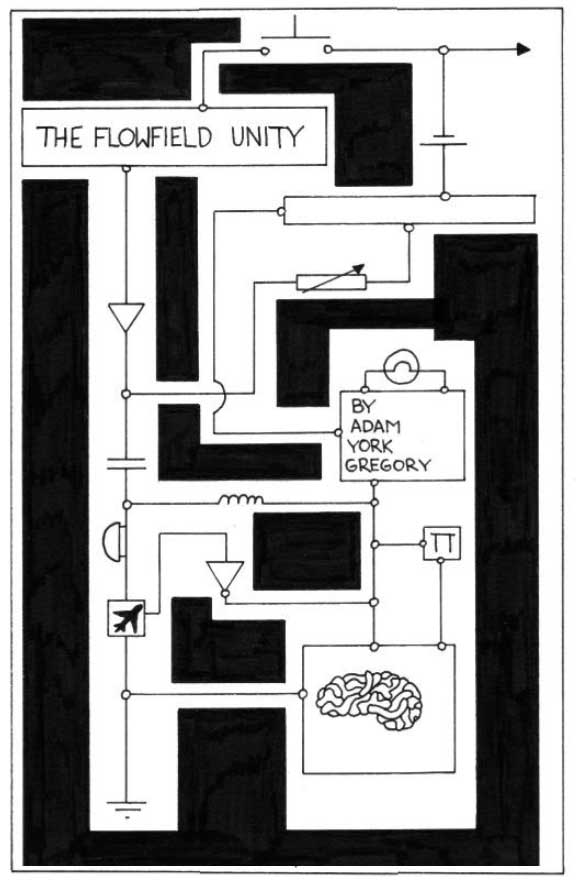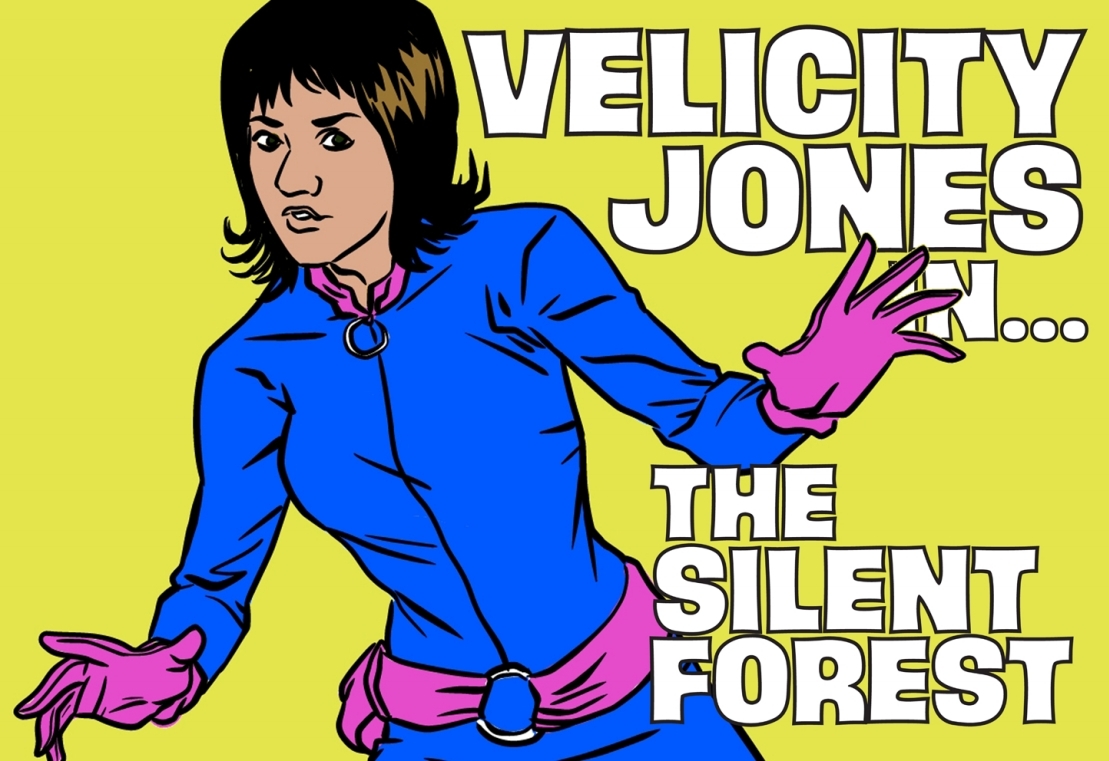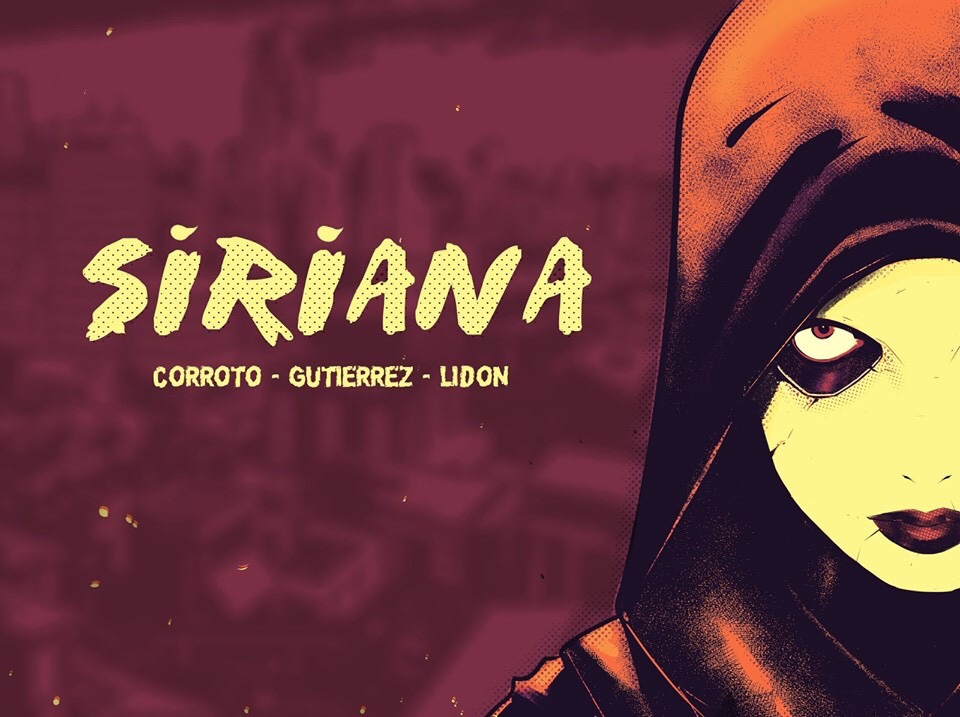 British comic creator Adam York Gregory has just released his new book based on his webcomic, The Flowfield Unity — but has abandoned trying to sell it by Print On Demand in favour of a tried and tested distrIbution method — print.
British comic creator Adam York Gregory has just released his new book based on his webcomic, The Flowfield Unity — but has abandoned trying to sell it by Print On Demand in favour of a tried and tested distrIbution method — print.
“After selling Flowfield Unity for a year via print-on-demand, I’ve decided to make the book by hand, from start to finish,” Adam told downthetubes. “The reasons for me doing such a thing, and some of how I do it are on my website, but the truth is, I’ve spent the last five years of my life dealing with printers, publishers and outlets and distributors, and whilst POD is a good way to get a professionally finished product out there, it has also lost some of its appeal for me.
“Actually, there’s a lie there, about the professionally finished product,’ he confesses. “I worked as a typesetter and designer for a publishing house for a while, and I know how to set books, but using a couple of the POD services I found that whilst 90% of the time the end product was fine, there would be a few occasions where the printers would mess up – lost pages, bad cropping, someone else’s book appearing in the middle of mine – and since the books are sent directly without me, or apparently anyone else checking them, the first I would hear is when I received an email from a disappointed customer… and that made me feel rather bad.
“That’s just not on. At least by hand, making the book I get to approve every copy.
“It has taken a bit of time, but I also believe that as a physical object, the book is made to a better standard by me than it is by the POD printers,” feels Adam. “The reason for this is that I use a traditional method, stitching the pages into sections (or signatures) and combining them before I add the cover. Compare this to the POD books where individual pages are bunched together and glued directly to the spine. I’m not saying that my new books are indestructible, but in my tests the only way a page is going to come loose is if you tear it.
“[There are issues with] paper quality and the card stock too… Understandably, there is a limit on how much a POD service can offer. But in my opinion, different books have different requirements and since this is primarily a book full of pretty pictures I want them to look their best in a suitable setting. No more 80gsm high-white!
“But construction standards and quality control aren’t my only reasons for doing this,” Adam adds. “One of the main reasons I’ve decided to go in what some people may consider a backwards step is that POD is so impersonal. There was a time with these sort of comics when you knew that the person drawing them had very likely stapled your copy together… there’s a contact link right there… and I wanted to go one further, I wanted to make each book an individual.
“I can do this by making them by hand. I’m no longer restricted to set content for a start. If someone wants a particular strip, they can have it, if they want a different cover design, they can have that too… I can customise it as a gift, I can draw and write in it, in much the same way that I make my original strips.
“It just seems to fit the ethos of my comic, the whole hand-drawn ideal translated reasonably well on the web, but in the process I lost something when turning it back into a book. Now, I’ve corrected that.
“The price of the book is important too,” Adam acknowledges, “and you’d think that by hand-making books you are going to negate all of the savings gained from mass production. But in my experience that isn’t the case. The unit costs of POD books is quite high. First there are the material costs, then there is the POD company’s cut, followed by delivery costs… and since they can’t always be trusted to send decent copies, you may even have to pay twice for those delivery costs – once in having them delivered to you, and then again when you send them out to stores… just so that you can check the quality. Believe me, there’s little worse you can do than sending defective copies to a store that has agreed to stock your book.
“So, by my calculations, the hand-made version shouldn’t be too much more expensive. The bulk discounts you may get offered for buy from POD in bulk are easily compensated for by buying your own materials in bulk.
“And speaking to a few store owners, the majority of their self-published comics are now coming through POD channels. There was a time that my book stood out due to that same fact, and now it would be just adequately camouflaged.
“I’m not trying to say that I think all comics should be made by hand,” Adam expands. “I’ve seen some excellent work with POD, but whilst those books looked mint, I always felt that Flowfield Unity looked a bit like a tramp in an expensive-looking suit… albeit one that would occasionally fall to bits.
“So there you go, control, cost, quality and personalisation… these things that I consider to be important in a self-published book, I can now achieve.”
We wish Adam good luck with his project.
• The Flowfield Unity is online at http://theflowfieldunity.com
• Does Adam’s experience with POD reflect your own? Leave a comment!
[amazon_link asins=’1477600574,0974959847,0823099237,1780191413,1470120216′ template=’ProductCarousel’ store=’downthetubes’ marketplace=’UK’ link_id=’86ec5c63-585d-11e8-a341-c5e8ed7ebf2c’]
The founder of downthetubes, which he established in 1998. John works as a comics and magazine editor, writer, and on promotional work for the Lakes International Comic Art Festival. He is currently editor of Star Trek Explorer, published by Titan – his third tour of duty on the title originally titled Star Trek Magazine.
Working in British comics publishing since the 1980s, his credits include editor of titles such as Doctor Who Magazine, Babylon 5 Magazine, and more. He also edited the comics anthology STRIP Magazine and edited several audio comics for ROK Comics. He has also edited several comic collections, including volumes of “Charley’s War” and “Dan Dare”.
He’s the writer of “Pilgrim: Secrets and Lies” for B7 Comics; “Crucible”, a creator-owned project with 2000AD artist Smuzz; and “Death Duty” and “Skow Dogs” with Dave Hailwood.
Categories: British Comics, Digital Comics, Digital Media, downthetubes Comics News, downthetubes News
 VR Comics Spotlight: “Angel Eyes” features work of a great team of British comics talent
VR Comics Spotlight: “Angel Eyes” features work of a great team of British comics talent  Never mind your regular football, cough up and enjoy Gary Whitlock’s barmy “Mutant United”, courtesy of Aces Weekly!
Never mind your regular football, cough up and enjoy Gary Whitlock’s barmy “Mutant United”, courtesy of Aces Weekly!  Velicity Jones back in Aces Weekly!
Velicity Jones back in Aces Weekly!  Does Aces Weekly Volume 40 see the debut of a new heroine – Siriana?
Does Aces Weekly Volume 40 see the debut of a new heroine – Siriana?